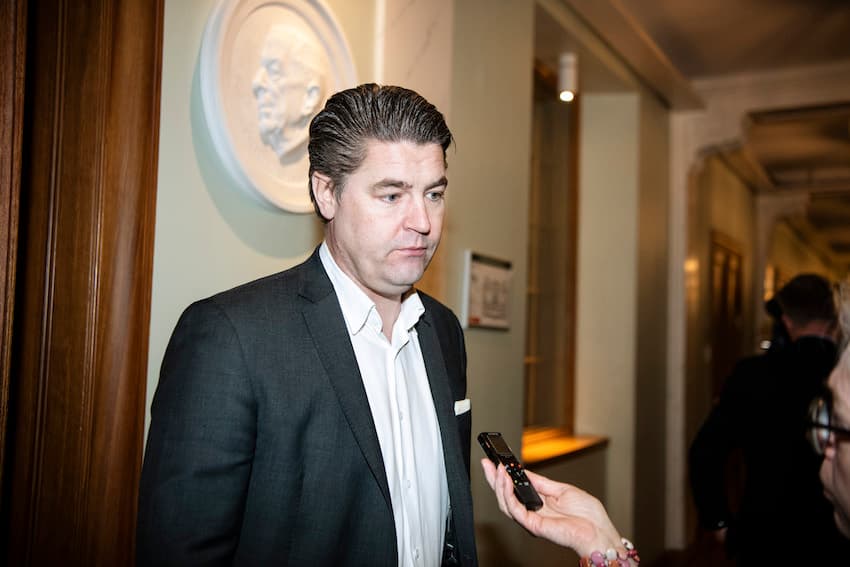Sweden Democrats threaten government crisis over biofuels obligation

The far-right Sweden Democrats are threatening to push Sweden's three-party ruling coalition into a political crisis as they fail to reach agreement over how drastically to cut the country's biofuels obligation, a key part in its plan to reduce emissions.
The party is claiming that a pledge in the Tidö Agreement calling for the biofuels obligation, or reduktionsplikt, to be cut to the "lowest EU level", should mean that the amount of biofuels that must be blended into petrol and diesel and Sweden should be cut to close to zero, rather than to about half the current share, as suggested by ongoing EU negotiations.
"We are being tough in the negotiations because of the power we have as the biggest party in this bloc," Oscar Sjöstedt, the party's finance spokesperson told TV4. "There is going to be a change at the end of the year that is going to be pretty significant and substantial, that I'm 99.9 percent certain about, otherwise we will have a government crisis."
The Liberal Party is pushing for a much less severe reduction, perhaps to a little more than half the current level, where 30.5 percent of all petrol and diesel must be biofuel.
"We have signed up to a temporary reduction in the biofuels obligation, and it's clear that that is what we are going to do, but zero is not an alternative for us," the Liberal Party's leader Johan Pehrson told TV4.
The decision to reduce the amount of biofuel in the mix at Swedish pumps has made it much more difficult for Sweden to meet its targets for emissions reductions, putting pressure on Pehrson's colleague, Environment Minister Romina Pourmokhtari.
Next Wednesday, Pourmokhtari will have to defend the extent to which her government's policies have pushed Sweden away from being able to meet its 2045 target of net zero emissions when the The Swedish Climate Policy Council reports on the country's progress towards its target.
Comments
See Also
The party is claiming that a pledge in the Tidö Agreement calling for the biofuels obligation, or reduktionsplikt, to be cut to the "lowest EU level", should mean that the amount of biofuels that must be blended into petrol and diesel and Sweden should be cut to close to zero, rather than to about half the current share, as suggested by ongoing EU negotiations.
"We are being tough in the negotiations because of the power we have as the biggest party in this bloc," Oscar Sjöstedt, the party's finance spokesperson told TV4. "There is going to be a change at the end of the year that is going to be pretty significant and substantial, that I'm 99.9 percent certain about, otherwise we will have a government crisis."
The Liberal Party is pushing for a much less severe reduction, perhaps to a little more than half the current level, where 30.5 percent of all petrol and diesel must be biofuel.
"We have signed up to a temporary reduction in the biofuels obligation, and it's clear that that is what we are going to do, but zero is not an alternative for us," the Liberal Party's leader Johan Pehrson told TV4.
The decision to reduce the amount of biofuel in the mix at Swedish pumps has made it much more difficult for Sweden to meet its targets for emissions reductions, putting pressure on Pehrson's colleague, Environment Minister Romina Pourmokhtari.
Next Wednesday, Pourmokhtari will have to defend the extent to which her government's policies have pushed Sweden away from being able to meet its 2045 target of net zero emissions when the The Swedish Climate Policy Council reports on the country's progress towards its target.
Join the conversation in our comments section below. Share your own views and experience and if you have a question or suggestion for our journalists then email us at [email protected].
Please keep comments civil, constructive and on topic – and make sure to read our terms of use before getting involved.
Please log in here to leave a comment.